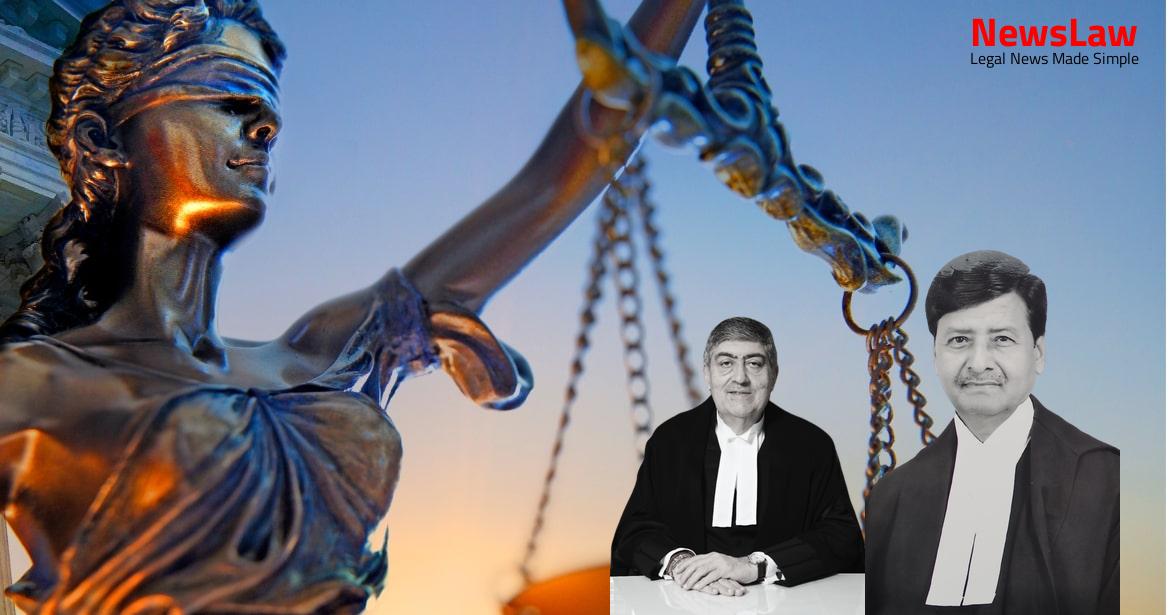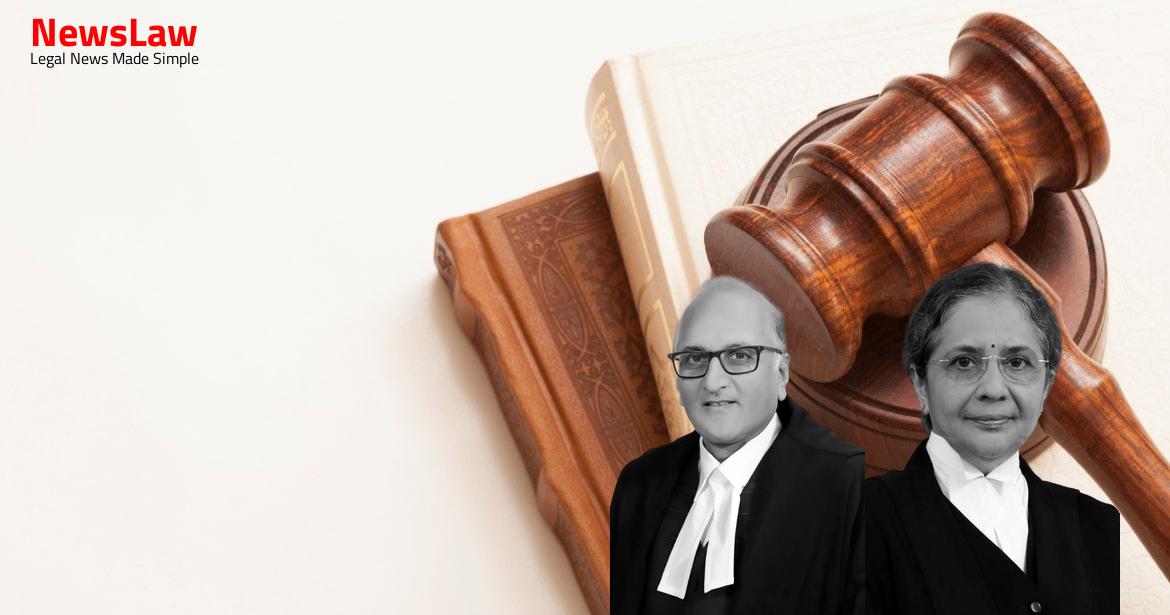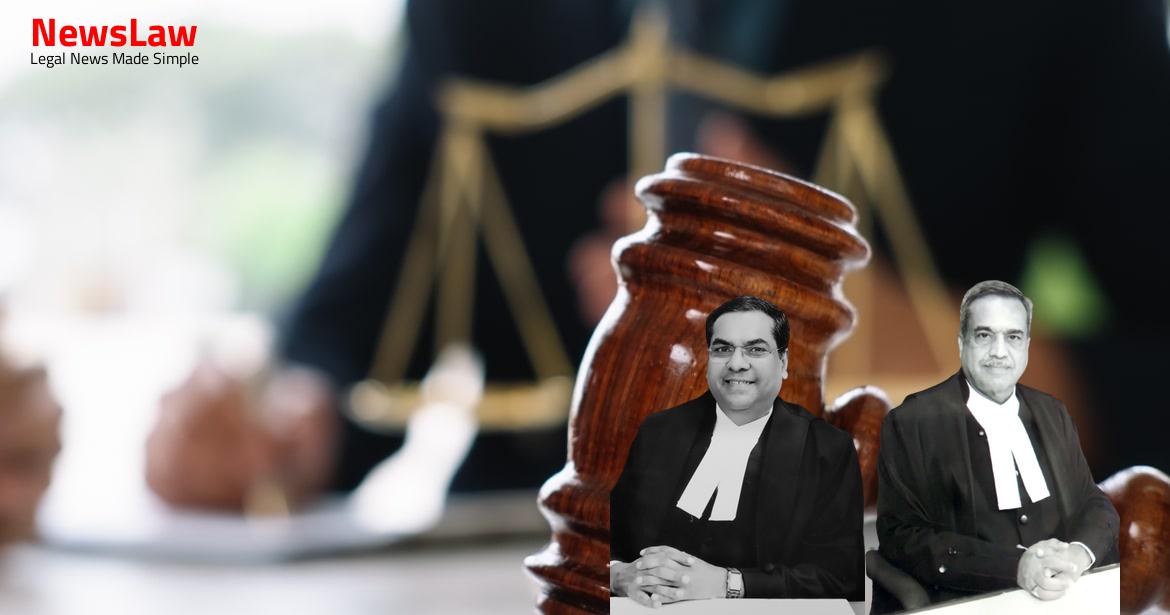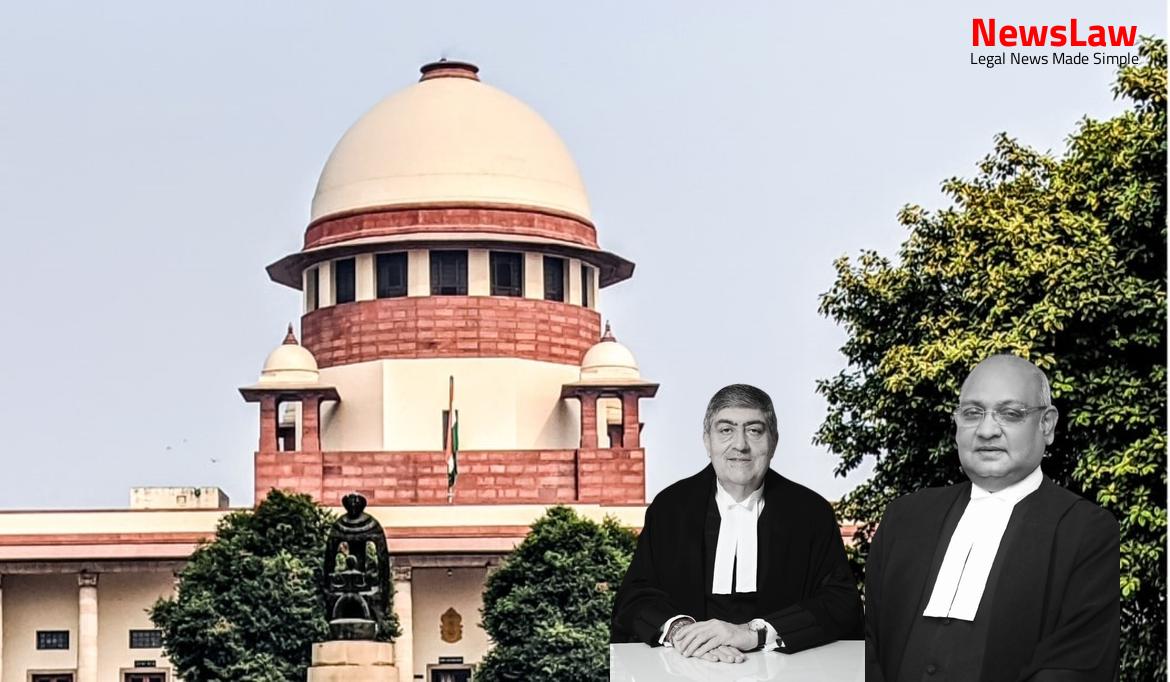This legal case delves into the crucial issue of recognizing CLR service for pension benefits, emphasizing the court’s in-depth legal analysis. The court’s interpretation of pensionary provisions and government orders is at the core of the case, ensuring fair treatment for employees seeking post-retirement entitlements. Follow along to uncover the nuances of this insightful legal analysis.
Facts
- Pension is a post-retirement entitlement to maintain the dignity of the employee.
- Appellant filed a writ petition regarding pensionary benefits and service count for pension.
- G.O.s were issued bringing hope to the appellant for benefits.
- Certain developments and G.O.s aimed at regularizing CLR and SLR workers for pension benefits.
- Appellant sought parity with other CLR workers in terms of pension benefits and service count.
- A representation by the appellant to treat his CLR service as qualifying for pension was made.
- Aggrieved CLR workers had a G.O. in 1989 for absorption as SLR workers.
- Appellant worked in various capacities with two different departments over 25 years excluding CLR service.
- Significant developments included bringing SLR workers’ service conditions at par with other departments.
- Claims based on the creation of 29 SLR posts for regularization of CLR workers.
- The Single Judge dismissed the writ petition on the grounds that the appellant’s appointment to the Revenue Department was through KPSC selection.
- The appellant was not comparable to CLR workers who were regularized as SLR workers under different G.O.s.
- The G.O. dated 21.8.2006 allowed for 200 or more days of work as a CLR worker to be counted towards pension qualifying service.
- The appellant was entitled to 8 years of qualifying service for pension due to his service as a CLR worker.
Also Read: Supreme Court Judgment on Single Till Mechanism for HRAB Calculation: A Comprehensive Analysis
Arguments
- The appellant argues that he is entitled to the service rendered as a CLR worker for 1678 days, as per the G.O. dated 20.8.1993 in the interest of workers.
- The appellant claims that the benefit of Rule 4(f)(iii) of the Pension Rules should apply to him if his CLR service was regularized as qualifying service and he had continued to work in the Fisheries Department.
- The appellant believes that if his CLR service was regularized, he would have been entitled to his maximum pensionable service on par with his co-workers.
- The appellant cites Rule 13, Part III of the Kerala Service Rules, stating that employees absorbed in a regular establishment can count 50% of their work establishment service for pension purposes.
- The writ petition was opposed by the respondents on the grounds that the benefit of G.O. dated 21.8.2006 was only for CLR workers regularized as SLR workers, which did not include the appellant.
- The respondents argue that the concept of regularizing long and continuous service for casual employees differs from a casual employee obtaining a permanent job through the KPSC, affecting the appellant’s pension eligibility, as per Part II of the Service Rules.
- The appellant enjoyed benefits as a direct recruit to a higher post since 1983
- Other original co-workers were regularized in 2001 through a Government Order dated 31.3.2001
- The benefits that the appellant had been enjoying were not available to the co-workers until their regularization in 2001
Analysis
- Appellant’s claim for pensionary benefits stems from the Government Orders (G.O.s) aimed at improving conditions and benefits for CLR workers.
- The appellant worked for a significant period as a CLR worker and should be entitled to pension benefits on par with other CLR workers.
- Pensionary provisions should be interpreted liberally as a social welfare measure to ensure retired government employees can live with dignity.
- The appellant’s case does not involve unreasonable benefits but is based on fair competition and successful recruitment against others.
- Technicalities should not unjustly deny pension benefits to employees who have served diligently, as seen in the appellant’s case.
- The government has the authority to declare certain types of service as qualifying for pension.
- The government can also allow service in individual cases to count for pension, with conditions imposed as deemed fit.
- These provisions override the rules stated in Rule 10.
- Rejection of the Fisheries Department’s recommendation by respondent No 1 was improper and unsustainable.
- Rule 13 of the Service Rules allows for counting 50% of earlier work service for pension purposes upon absorption in the establishment.
- Appellant is entitled to succeed in the appeal and the impugned orders should be set aside.
- Appellant is being deprived of maximum pensionable service by not recognizing his CLR service as qualifying service.
- Denying the same benefit to the appellant, who would have rendered more service compared to other CLR workers, is unreasonable.
Also Read: Selection and Appointment of Judicial Officers in Himachal Pradesh
Decision
- The arrears of pension must be remitted to the appellant within a maximum period of eight weeks with applicable interest.
- The appeal has been allowed with costs to be paid throughout.
- The appellant’s service as a CLR worker should be considered for determining pension benefits on par with other CLR workers.
Case Title: V. SUKUMARAN Vs. STATE OF KERALA . (2020 INSC 510)
Case Number: C.A. No.-003984-003984 / 2010



